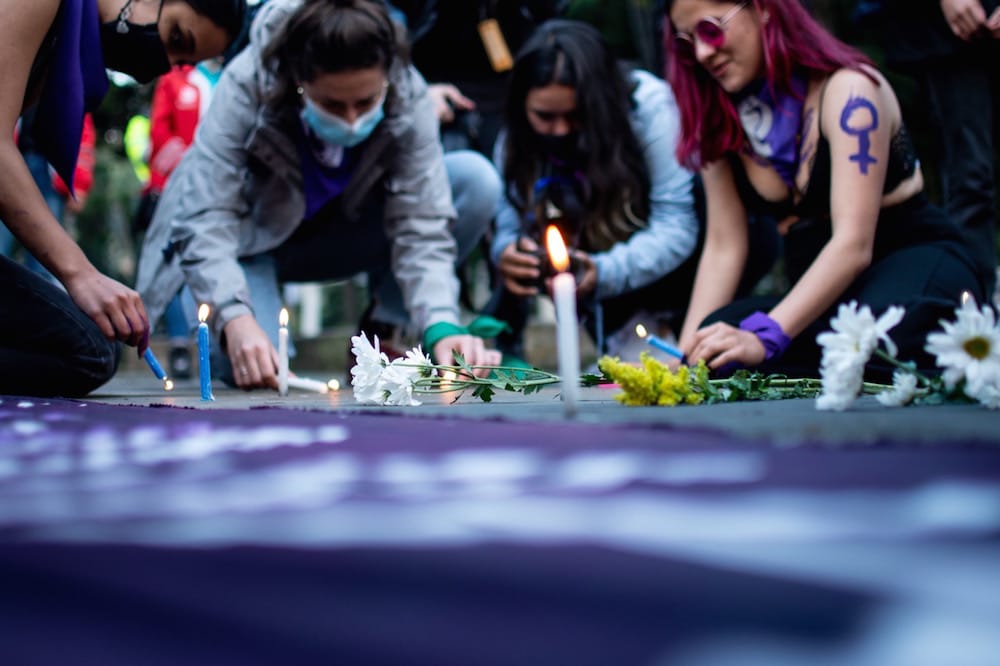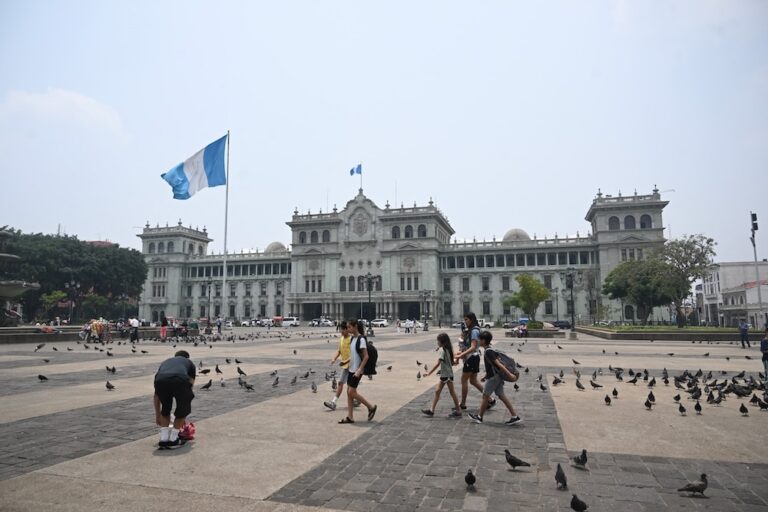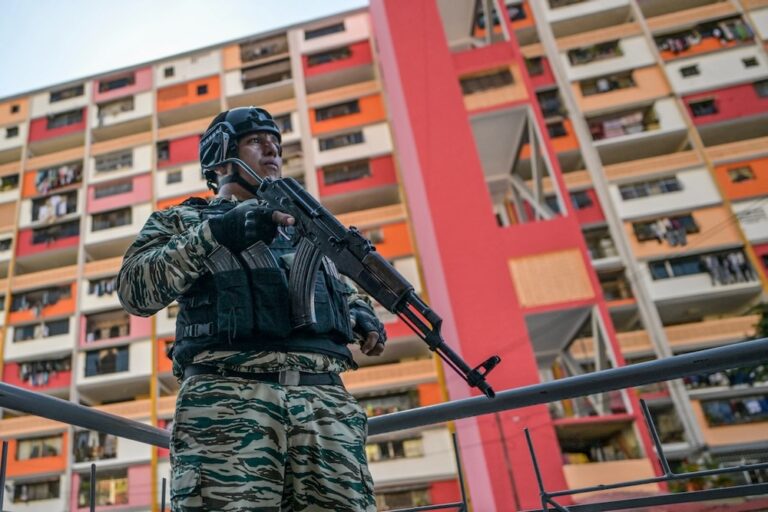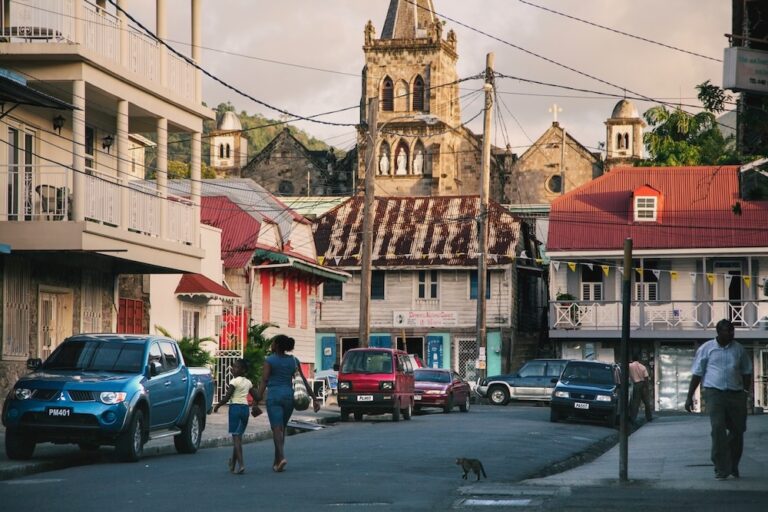November in the Americas: A free expression round up produced by IFEX's Regional Editor Paula Martins, based on IFEX member reports and news from the region.
The shadow pandemic – the end of reason
From 25 November to 10 December, IFEX-ALC members and partners have mobilized with the UN to organize the 16 Days of Activism against Gender-Based Violence activities, under the 2020 global theme: “Orange the World: Fund, Respond, Prevent, Collect!”
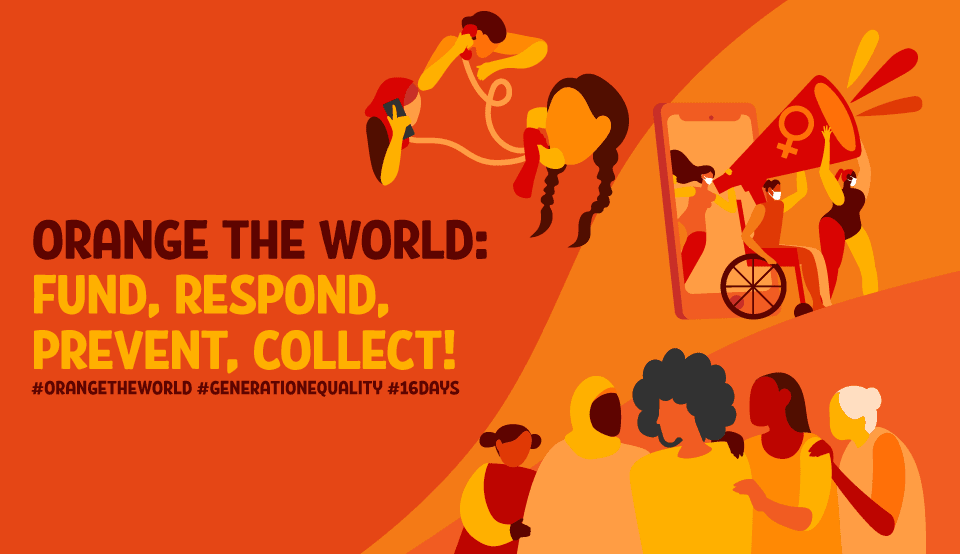
https://www.unwomen.org/en/news/in-focus/end-violence-against-women
A recent UN report has provided the following Fast Facts about this grave situation that affects women of different identities and backgrounds around the world:
- Globally, even before the COVID-19 pandemic began, 1 in 3 women experienced physical or sexual violence mostly by an intimate partner
- Emerging data shows an increase in calls to domestic violence helplines in many countries since the outbreak of COVID-19
- Sexual harassment and other forms of violence against women continue to occur on streets, in public spaces and online
- Survivors have limited information and awareness about available services and limited access to support services
- In some countries, resources and efforts have been diverted from programs that respond to violence against women, and directed towards immediate COVID-19 relief
Women journalists and human rights defenders have not escaped this vicious cycle of violence, so structurally embedded in our societies.
IFEX member in Colombia, Fundación Karisma, has been organizing a series of activities that includes surveys, focal group meetings and open workshops to understand violence against women journalists and media workers in their country. In one of these events, journalist Vanessa Restrepo affirmed that the context in which women exercise journalism in Colombia is hostile and that it has a huge potential for imposing silence and the normalization of this violence. She said women journalists do not know how to act against this violence. Recently, Colombian newspaper El Colombiano was taken to court due to the alleged lack of protocols and routes within the outlet to respond to reported cases of violence against their female workers. Paulina Baena told Karisma that in her case, given the visibility she has online, sexist violence is overflowing – “I feel that reason is dead.” She added that she has ended up “’anesthetizing’ herself as the only way to hold on.”
In a recent publication, ARTICLE 19 offers a (non exhaustive list) of the most common forms in which online abuse and harassment against women journalists take place:
- Doxxing – This involves the public dissemination of a woman’s personal information, such as email, telephone or home address. This can often result in increased harassment, and create a safety risk.
- Surveillance – Whether perpetrated by public or private entities, the monitoring of a woman’s online and/or offline life through technological means.
- Threats – These are issued through digital platforms or apps, and often include threats of physical or sexual violence.
- Harassment – Like offline harassment, this can include a range of unwanted and intimidatory activities including contact through messages or apps. Online this can often take the form of ‘pile-ons’, with multiple perpetrators.
- Non-consensual distribution of intimate or sexual images – This refers to the sharing of sexual or intimate images of a woman, which can be taken with (or by her) or without her knowledge, and either by someone who has access to them with consent (but there is no consent for them to be further shared), or by someone who gains access through other means. This can have serious psychological and reputational consequences.
- Stalking – Includes a range of behaviours, similar to offline stalking, such as continued monitoring through technology, the pattern of which leaves the woman feeling unsafe or restricted in her freedoms online.
- Hacking – This is when someone gains access to a woman’s private accounts or devices through malicious means. This can often lead to another form of attack, including blackmail.
- Identity theft or unauthorized use of accounts – Where someone is able to take control of or in some way impersonate a woman’s online presence.
- Discriminatory and sexist speech and gender stereotypes – This can include a wide range of types of speech based on negative stereotypes or on the basis of a woman’s gender, nationality, religious belief, race, among others.
Another IFEX member, Fundación para la Libertad de Prensa (FLIP), has also been trying to map and understand this difficult environment. This November, the group released a new report that looks at how newsrooms and journalistic pieces address the issue of gender violence. One of the sources of information for the report was a survey with women journalists in which virtually all respondents claimed to have been victims, or heard of some kind of gender-based violence within their work. The document also indicates the lack of protocols to deal with such occurrences, which, as pointed out during the Karisma workshop, often pushes journalists to abandon their workspaces, issues and sources. Finally, FLIP’s report points out a marked tendency on the part of male journalists to prejudge victims in cases of femicide and sexual violence – this is especially worrisome when the same research shows that men are usually appointed to cover stories about femicides, because they are considered to be more ‘objective’ than women.
The collection of data, through studies such as those described above, as well as by public authorities, is essential to provide the information needed for the design of robust public policies to combat violence against women.
Derechos Digitales has been promoting the collection of data to give visibility to the digital violence suffered by girls and adolescents. They have supported, for example, the initiative #ChidasEnLinea in Mexico.
Data is key to give prominence to the problem, but initiatives to increase availability of data on VAW (violence against women) or gender inequality need to be oriented by a feminist lens to better understand the limitations and inherit risks involved. Karisma has stressed that “[t]he perspective of data feminism first seeks to understand how data science practices deepen gender, race, and class inequalities. Second, it wants to question and change the distribution of power.” Because data never speaks for itself.
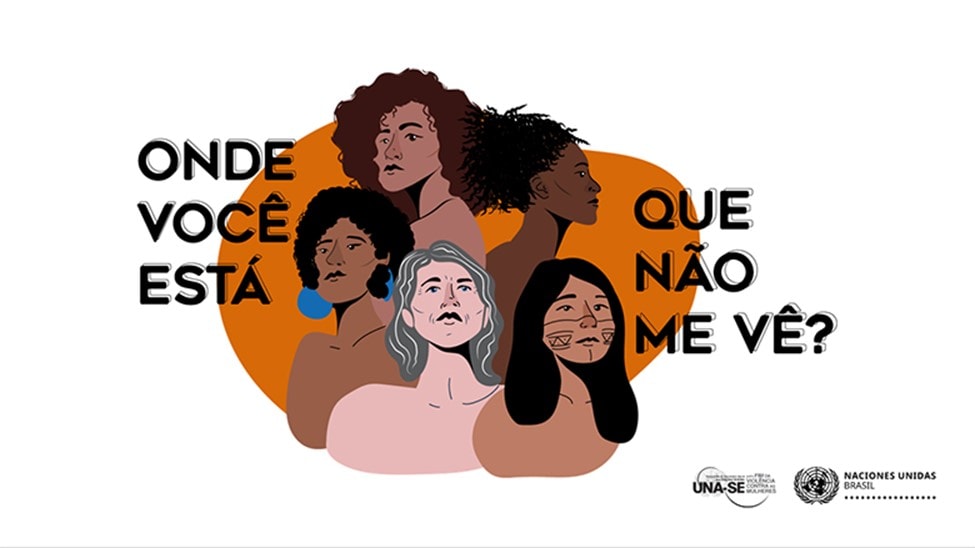
http://www.onumulheres.org.br/
UN Women and the World Bank have also highlighted this concern. For them, the production of data on violence against women and girls is a central strategy for the adoption of effective measures to cope with it. However, it is necessary to ensure that the entire process of producing these data is done based on ethical and safety principles, not only to ensure the reliability of their results, but also to ensure the safety and physical and psychological well-being of the people involved, from the interviewers to (mainly) the women and girls whose data are being collected.
This potential, to do good or hurt, makes it essential to ask: Who does the science of data? For whom? What are your interests in producing and analyzing data? The narratives around data science have been predominantly male, white and ‘techno heroic’. That is why Karisma has organized a discussion with Prof. Catherine D’Ignazio, author of the book Data Feminism. According to Karisma, Catherine D’Ignazio describes herself as a ‘hacker mom’. With fifteen years of experience as a software developer and experimental artist, she is director of the Data Laboratory + Feminism and Assistant Professor of Urban Science and Planning in the Department of Urban Planning and Studies at MIT. Curious to hear more? The debate is available on Karisma’s You Tube channel.
The ‘end of dialogue’ with San Isidro’s artists
According to the BBC, the Government of Cuba has announced that it now considers ‘broken’ the dialogue with the San Isidro Movement (MSI) artists, who, in late November, started one of the largest protests that has taken place on the island in the past 60 years.
In mid-November, approximately 14 activists, artists, and journalists congregated at the MSI headquarters, under siege from state security forces. They demanded the release of the musician Denis Solís González.

Later that month, MSI’s headquarters were raided by security forces. Fifteen people were arrested and put in official cars to be taken to National Revolutionary Police (PNR) station, and subsequently to their homes, where they were put under house arrest.
According to IFEX-ALC and partner organizations, “[b]etween November 10 and 18, there have been 34 arbitrary arrests of 20 individuals documented, alongside surveillance operations intended to prevent free movement and internet service blocks for artists, activists, and journalists peacefully demonstrating for the release of Denis Solís. The various peaceful protests demanding the release of the musician have resulted in an escalation of violence.”
The groups have demanded that the Cuban government declare the criminal proceedings against Denis Solís González void and proceed with his immediate release. They have also demanded that the government allow citizens to exercise their right to peacefully protest and that the harassment and digital interference against those who participate in or carry out journalistic coverage of these events cease.
With no preventive measures, violence against communicators remains a constant in Brazil…
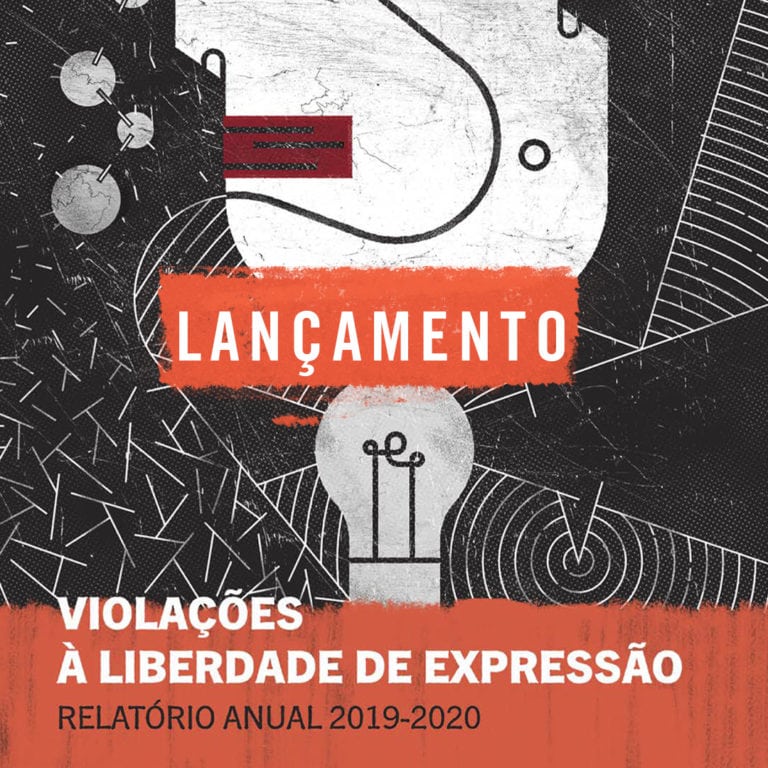
Art: Cássio Abreu, Attribution-ShareAlike 3.0 Unported (CC BY-SA 3.0)
On 26 November, IFEX member ARTIGO 19 launched its eighth annual Violations of freedom of expression report, which compiles and analyzes the serious violations against communicators in Brazil: these are cases of homicides, attempted murders and death threats, monitored by the organization during 2019 and the first half of 2020.
A total of 38 cases of serious violations were documented, 27 in 2019 and 11 in 2020. Of that total, 32 refer to death threats, 4 to attempted murders and 2 murders – serious crimes that have targeted communicators and are linked to the exercise of their right to freedom of expression. According to the publication, the numbers in recent years are close to the historical average of 30 cases per year, indicating that neither preventive measures nor robust protective policies to avoid and prosecute crimes against journalists have been adopted in the country.
… And in Mexico as well, the crisis continues
One year after Andrés Manuel López Obrador took office as Mexico’s President – and on the occasion of the International Day to End Impunity – 17 members of the Coalition of Civil Society Organizations on the Safety of Journalists, an international coalition dedicated to the defence and promotion of the safety of journalists, carried out an observation mission to Mexico. The mission included a number of IFEX members and its objective was to place the crisis of freedom of expression as a priority on the national government’s agenda.
In November 2020, one year after the mission, the Coalition released a new red alert: “the government has failed to fulfil its commitments, and the freedom of expression situation in the country is worsening”.
ARTICLE 19 has documented a 45% increase in attacks against the press in comparison with 2019. Since the mission to Mexico, at least seven journalists have been assassinated, with the crimes having possible links to their journalism work. (ARTICLE 19, CPJ and RSF have documented the assassinations of Julio Valdivia, Pablo Morrugares, Jorge Miguel Armenta Ramos and María Elena Ferral. In addition, Reporters Without Borders (RSF) documented the assassination of Víctor Fernando Álvarez). In addition, (RSF) reports that at least 21 journalists have disappeared since 2003, representing the highest figure in the Americas. Moreover, in 2020, Mexico rose one spot on the Global Impunity Index of the Committee to Protect Journalists, now occupying sixth place – just below open war zones.
In view of this situation, this November 2020 the members of the Coalition called once more on the Mexican government to urgently:
Impunity:
- Design a strong transitional justice policy to end impunity for the murders, disappearances and violence against journalists in Mexico.
- Report on what measures and policies will be implemented in the future to stop the spiral of violence against the press, and what actions will be taken to combat impunity for crimes against freedom of expression in order to provide guarantees of non-repetition and access to justice.
Protection:
- Provide information on the measures that will be taken to guarantee the funds for granting protection measures by the Mechanism, in light of the disappearance of its Trust and the fulfilment of the 104 recommendations of the OHCHR to the Mexican government on protection matters.
Prevention:
- Put an end to stigmatisation of the press at all levels of government and recognise the essential role of the media in strengthening democracy.
- Ensure public servants conduct themselves in accordance with the highest freedom of expression standards and tolerate the criticism to which they are subjected as a result of the public nature of their work.
- Create conditions during press conferences, within all governmental bodies, that protect health and prevent viral transmission, including measures that conform to recommendations issued by the Health Ministries and the World Health Organisation.
- Promote a policy of prevention that reduces attacks against freedom of expression.
- Ensure that the State and media companies, in accordance with the United Nations Action Plan on the Safety of Journalists and the Question of Impunity, develop strict health protocols to prevent contagion in their newsrooms and to support journalists who may be infected.
Right to Information:
- Prioritize information on citizens’ rights, as well as duties and obligations in a health emergency context.
- Refrain from restricting the right of access to information, and guarantee the right to seek, receive, request and disseminate information of all kinds.
No evidence presented against Pedro Jaimes
In November 2019 we reported the release of blogger Pedro Jaimes, after more than a year in jail. He had been accused of cyber espionage, interfering with the operations of civil aviation and illegally revealing political secrets, 3 alleged crimes that, according to IFEX member Espacio Público, had no basis in evidence or facts.
This November 2020, the first trial hearing in the case against Pedro Jaimes was held, after 15 postponements. Espacio Público defended the journalist, formally presenting its arguments. The Public Prosecutor’s Office failed to present any evidence against Jaimes – during the hearing it did not submit witnesses, experts, documents, or even question Jaimes.
In view of this fact, the defense has requested the immediate acquittal of Jaimes.
Pedro Jaimes faces an unfair process after the publication on Twitter of the presidential plane route on 3 May 2018. This information was public in nature and of national interest, and was obtained on the Internet through free websites that monitor flights around the world; however, officials of the Bolivarian National Intelligence Service (Sebin) arbitrarily arrested Jaimes on 10 May 2018.
Pedro went missing for 33 days and, according to Espacio Publico, was tortured – hit with an insecticide-sprayed bag on his head, beaten till he fractured a rib, denied medical attention on several occasions and was held in unsanitary conditions that led to respiratory and skin diseases.
Police brutality against protesters – this time in Peru
This past November, Peru had 3 presidents in one week. After the ousting of President Martín Vizcarra, protesters took to the streets around the country. Riot police were seen using rubber bullets and teargas to disperse large groups of protesters in Lima.
On 14 November, IFEX member Instituto Prensa y Sociedad (IPYS) published a list of more than 30 journalists attacked with teargas, injured with pellets, pushed and beaten. On 11 November, the National Journalists’ Association (ANP) affirmed that hospitals recorded two dead protesters and several journalists injured by security forces. There were also initially 42 protesters missing, although that figure dropped over the hours.
In view of this situation, the IACHR Special Rapporteur on Freedom of Expression released a statement, expressing concern over the situation and recalling the important role of public demonstrations in defending democracy and rule of law. The Special Rapporteur stated that “it is the duty of the State to ensure the exercise of the right of protest, including the rights of peaceful assembly, association and freedom of expression”, whether in its collective or individual exercise. The Special Rapporteur added that protests are aimed at publicly expressing opinions, visions or values of dissent, opposition, denunciation or demand.
ANP has called on authorities to hold those responsible for the violence accountable and urged the Peruvian State to take political responsibility to avoid further acts of violence in the context of protests.
